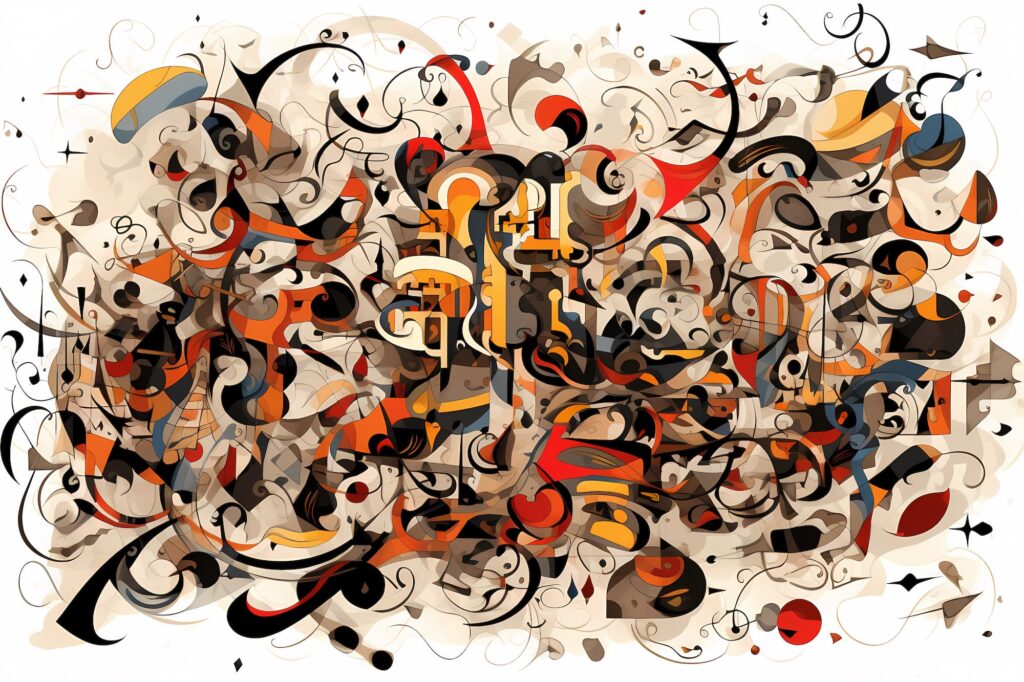Why I Quit Being a Baha’i
These are all the reasons why I quit being a Baha’i. Or, in the words of Baha’is, why I “left the Faith”.
In my case, I call leaving a religion I grew up with “learning how to be me.”
I’m putting these reasons I quit the Baha’i faith down in writing because it may help other people understand their own thoughts and to find themselves after leaving the Baha’i faith, or any religious community.
The way in which I resigned from the faith was to admit I never believed at all. There was never a period where I thought it was true. I really did try, though, inspired by others around me. It just never worked.
But do I consider myself a Baha’i? Somewhat — in a secular, identity sense. It shaped who I am. It gave me a framework for being a “good person”. And it’s impossible to shake an identity with which you grew up. In fact, I’m learning to embrace it.
But I don’t exist on the rolls. As far as the international Baha’i community knows, I never existed at all. (For privacy reasons, I asked them to delete all my records.)
Here’s my story.
Sometimes people post this up on Reddit or other social media, and I’m flattered. I don’t discuss things openly there (the small percentage of toxic personalities on social media ruins it for me, which is why I write here), but I welcome one-to-one discussion if you want to contact me.

Background and Overview
As a quick background, in case you’re a non-religious friend reading this, the Baha’i faith is a small religion that originated in Iran (then “Persia”) in the mid-19th century.
The person who founded the Baha’i faith claimed to be the latest in the Central Middle Eastern series of prophets, and generally said (paraphrasing): “All religions are of the same source, but ours is the latest version. Everyone is equal, though. Now, go follow these laws, this administration, and these guidelines. If you’re serious, take part in community development, much of which is sometimes subtly, and sometimes explicitly about getting more followers.” (See more here at their official website.)
I grew up in a religious (but luckily, open-minded and accepting) Persian family that belongs to the Baha’i Faith. My parents went through a lot of trials in their lives, and most of my extended family are refugees for religious reasons. The reason they’re refugees is that the Baha’i religion is not recognised in Iran, and thus Baha’i citizens don’t have any civil rights, including for education, government jobs, healthcare, and so on.
After a difficult adulthood trying to reconcile the Baha’i faith with my personal beliefs, I realised I couldn’t, and so had to leave.
Fundamentally, I left the Baha’i faith because I didn’t believe. To follow a religion (or any belief system) requires having faith. I didn’t. I don’t. And I won’t, in any religion — nor any political system or structured set of beliefs.
It was a little bit hard for me to resign. The hardest part was that I really respected and admired quite a few people in the broader Baha’i community. Somehow, they felt empowered by being a Baha’i and did great things in their lives. One of these was my then-wife, who is objectively an excellent person — a good spirit, and always trying to help others. I knew many others like her too. I tried to be like them and failed.
But I’ve realised that I had excellent friends in the Baha’i community because I have excellent friends in the world at large.
There are other reasons, too. Because a lot of my family has suffered for the Baha’i faith, they’re sense of identity is rooted quite deeply. A lot of people will empathise with this, of course — many people suffer, and I know how it shapes identity. Even though I never suffered much for it (barring a time I visited Iran and was prevented from leaving for two months — a story for later), the family association shapes my identity, too.
So for a mix of the above reasons, I personally retain a Baha’i identity. If it were possible, I’d have liked to be a non-practising secular Baha’i, like a secular Jew. But that concept doesn’t exist. So I resigned.
The Fundamental Reason I Quit the Baha’i Faith: I Don’t Believe

I couldn’t be like other Baha’is because I never really believed. I “lacked faith”, as religious types would put it.
To be part of any religion or movement, you have to believe in its truth or its purpose. But I didn’t.
To be the definition of a Baha’i, you have to accept these three things:
- “God”,
- The founder, as the “manifestation” of “God”, and
- All the teachings as a consequence.
The duties of belief in God, the founder, and the teachings come from the first paragraph of the Baha’is most holy book. They’re fundamental.
Unfortunately, I never believed in any of it. I tried to figure out ways of making it work in my head. I pretended. I tried to “fake it ’till you make it”. But I didn’t really believe it.
The stuff about “God” and the “manifestations of God” (which is what Baha’is call Jesus Christ and Muhammad and so on) and the spiritual concepts always felt like hocus pocus, magical stuff to me, like Santa or telekinesis. None of it felt real, not when I was young, nor when I was an adult. I left for that reason, fundamentally.
I’ll explain more below, but I simply can’t accept the concept of a mysterious “God” sending down “manifestations” at all. Further, I can’t just not be Baha’i; all religion is anathema to me. (I hear about people abandoning the Baha’i faith for another religion, and can’t help but wonder why. Why do people want to follow some mysterious belief system?)
So, do I believe in God? Yes, to the limited extent that I always did, but in a very vague way. Whenever anyone asked me about my belief in “God” (I have to put it in inverted quotes, because Baha’is capitalise it, and I’m doing that to acknowledge their tradition), I’d always give it a highly qualified answer, saying something like:
“Well, I believe in a universe where we may never understand everything, because we’re just squishy blobs of goo. But we should try. That stuff that we may never actually understand, because of our physical limitations, is what you might call ‘god'”.
– Me, trying to fake believing in “God”
This is laughably far from the definition of a deity that most religions espouse. For example, my definition of “God” isn’t something you’d pray to, or fast for, or have any relationship with other than as a distant curiosity.
Because of my non-belief, I consider myself a “secular” Baha’i. I appreciate the impact it had on me as a young person and having grown up. But mostly, I think that I would have been a good person even if my family weren’t Baha’i.
People who would have been good regardless of religious influence include my parents, some of my extended family, and many of the friends I’ve kept. At their core, they’re just great people. Some of my extended family are terrible people, though, and still call themselves Baha’is. Some other Baha’is are far worse. I’m good because my parents raised me well. I appreciate that.
There are other reasons though, other than a lack of faith, that I left the Baha’i faith.
Religion is Always Harmful to Someone
I find the dogma of religion in itself repugnant. It’s often harmful to individuals and society. This is almost inevitable in any group.
Religion is the cause of so much conflict in the world. It tears families and societies apart. This is the de facto opinion, and it’s ridiculous listening to religious people arguing that conflict is not because of religion, but rather because of its members. What is a society if it’s not its members?
Some harmful things that religion constantly does is
- Create an “us” and “them” mentality. Baha’is refer to themselves as Baha’is, or sometimes in writings as “the Faithful” or “the Friends”, and to others as “non-Baha’is” or “non-believers”.
- Prevent open discourse. Baha’is often sacrifice self-expression for the sake of “unity”, believing that unity is paramount.
- Give people a justification for their prejudices. The Baha’i faith’s concept of sexuality and relationships is extremely narrow — limited to heterosexual relationships between legally married partners. This was largely due to the interpretation of one former leader of the religion of one vague line in the writings. Because of the structure of the Baha’i faith, it can’t be challenged. (More on governance below.)
Religions, including the Baha’i faith, are a medium for harm to people. They deny people’s identities, and give others an excuse for persecuting them — for example, for being gay, having a different gender identity, or having a different belief system.
I know of many people with fractured relationships with their other family members because of a differing interpretation of what it means to be a member of their religion.
For example, when I told one family member was getting a divorce, they started crying and made me promise to try to resolve it. (I just never spoke to them again.) Another family member always gives me homophobic diatribes every time I visit, apropos of nothing (I’m not the target).
Baha’is themselves believe that if religion is harmful then it shouldn’t exist. Yet somehow, they don’t see the irony of continuing to believe in their religion, failing to see the harm it causes.
God Doesn’t Exist (in the form religions claim), nor does Heaven

I never believed in the Baha’i (or any religious) concept of “God”.
For years, if someone asked me “So, do you believe in god”? I’d give a vague answer, like the one I mentioned above, talking about some ineffable concept of unknowability that has nothing to do with prayer, fasting, or the afterlife.
My personal, vague definition of “god” (which I wrote above) is nice and vague and has absolutely nothing to do with the “God” of religions.
I never understood why there’d be an all-powerful being who wants you to have a relationship with them but who doesn’t show themselves, wants you to pray to them even with no concrete answer, requires you to fast, or many other things.
The Baha’is give all kinds of metaphors for this, like a painting not being able to understand its painter. They’re poetic, but there’s no direct link between those and the things that religious people expect you to do, like abstaining from sex or not consuming certain substances.
Baha’is believe in an afterlife. Conveniently, there’s only “the Good Place”. Where you are in it depends on how many points you gain on Earth (really, it does seem a lot like the show!) But come on, there’s nothing special about humans. To believe in an afterlife is vanity.
And the best part is that you don’t have to be a Baha’i to get into the afterlife. So, where’s the upside of being a Baha’i, guys? Do your marketing!
God Isn’t Sending us Messengers or Prophets.
I don’t believe that a “God” is coming down or sending down to us mysterious prophets to help us, in mystical and semi-concealed ways, deliberately obfuscating the message just to make our lives difficult.
Abrahamic religions have this concept of a “Son” or a “Prophet” or a “Messenger” who either represents God or is God.
It happens periodically. Moses, Jesus, Muhammad, and the Baha’i “messengers” (the Bab and Baha’u’llah) all claimed to have either been sent by “God”, to be an incarnation of God, to be God themselves (if you believe in the “Trinity”), or to represent God in some way.
Those representatives give overlapping and generally similar messages (be nice, don’t kill people). But their messages also become huge sources of conflict for their followers.
The main problem with this is that despite purportedly coming from an all-powerful, all-knowing source, the messages are incomplete, hard to follow, delivered in a poor medium (orally, sometimes), and vague.
The result is that their own followers get into conflict with each other, like in the case of Protestants vs Catholics in Ireland, or the conflict between Shi’a and Sunni Muslims. It’s confusing, because to outsiders, those followers are all the same (yes, to me, Catholics are just a variety of “Christians”. They’re all Jesus/Bible people!)
Conflict between religions is also ridiculous and makes no sense. It’s like the president of a company appointing various CEOs, giving them similar/identical missions, and then allowing them to fight. (I’ve seen this strategy, actually! It never ends well.)
You can always find nice people from any religion who accept others, including but not limited to Baha’is.
If they’re truly accepting, then they’re actually like me and not that religious, and maybe have a foot in and out the door.
But probe far enough with a deeply religious person — the kind who would never be one of my friends — and you’ll find that they think people from other religions are either going to hell, or aren’t going to the same heaven, or haven’t seen the light in some way.
Rituals and Symbols are Meaningless
Baha’is claim to not have rituals. It even says so here in the Britannica article.
But Baha’is do have rituals. There’s daily prayer (complete with various body movements including prostrations), fasting, words of greeting you’re supposed to use with other Baha’is, and more.
I mean, if you visit the holy places in Israel, you’ll see people do things like walk slowly towards the shrines, walking around them in a slow and deliberate circle (“circumambulating”, a word I’ve never heard elsewhere), never turning their backs to them, and so on. These are rituals, people.
I don’t believe any “God” concept would want us to do certain abstract things, like attend regular meetings, pray facing a certain direction, or consume or not consume certain foods. (I have a relation who won’t eat cake if it has vanilla in it because vanilla contains alcohol. Christ on a bike…)
Every time someone explains why some “God” entity wants us to do things like the following, for any religion —
- Not consume certain foods or liquids, sometimes at certain times of the day or year,
- Not have sex with certain people or without certain documents,
- Pray with specific words, in certain places, at certain times, facing a certain direction,
- Say certain words at various times,
- Accept someone as their lord and saviour, or as the messenger, or the seal of the prophets, or whatever
— I listen to the explanation and think “That sounds crazy”. Because objectively, it is crazy. If someone else were telling you that, you’d listen politely and think “That’s crazy” because it is crazy.
To people who have one set of beliefs, a very different set of beliefs sounds threatening and crazy.
If this many groups think the others are all crazy, then it’s highly unlikely that one of them is right. (One of them might be. And yes, it’s your one! Congratulations!)
Related to rituals is symbolism in the Baha’i faith. Baha’is love symbolism. For example
- Baha’is ascribe a lot of meaning to the numbers nine and nineteen, seeking them out everywhere as signs.
- Baha’is look at everything as a “sign” or a “test”. The exact definition of which is which is entirely subjective. (For example, a Baha’i stumbling upon this article may consider it to be a sign to leave, or a test of their faith, depending on their inclination.)
- Baha’is always look for meaning in phrases like “entry by troops” or “the turn of the century”. Obviously, there is none.
There’s much more, but even just that much is enough. It’s nauseating.
The worst part is that Baha’is make predictions about things, but never admit failure when they don’t come true. Again, they’re not unique in this, by any means, but they’re just as culpable as any other cult.
Religious Rules on Sexuality are Harmful
I don’t support many of the teachings of Baha’is, including those about sexuality and marriage (let alone LGBT / queer rights).
Like many religions, the Baha’i faith likes to tell people with whom and under what conditions they can have sex.
The concept of sexual identity in the Baha’i faith is strange and has caused identity issues with me, some of my friends, and presumably many others.
Growing up, I was told that I wasn’t allowed to have sex before marriage, that marriage was some kind of goal to aspire to, and that children were something I had to have if I got married. I was told not to look at porn, not to lust after women, and not to masturbate. Result: I did all those anyway, but just was wracked with guilt.
Exorcising guilt from my life was — and continues to be — a lifelong process. It damaged me from the foundation. (Most religions love guilt, as do many cultures, so I wonder if I could have ever escaped this. If you did, then give the people who raised you a huge hug.)
The ideas that the Baha’i faith has about homosexuality are embarrassing to the point of being cringe-worthy. Some descriptions of homosexuality in the Baha’i teachings include describing it as “against nature”, a “handicap”, “spiritually condemned”, a “distortion” of one’s nature, and so on. (All available here.)
To any Baha’i who thinks of themselves as a forward-thinking, accepting person — and there are many (including all of the Baha’i friends I retained) — I’m not sure how they reconcile their beliefs with what the Baha’i teachings say about homosexuality. Many brush them to one side, and say those are not their personal beliefs, but on the whole, they think the Baha’i has good foundational principles. Nonetheless, I found it hard to look my queer friends in the eye while I was associated with a non-inclusive dogma.
Telling people when to have sex and when not to, and with whom they can have sex and under what documentary conditions, is ridiculous and harmful. It harmed me, even as an intelligent adult who tried to see through things, and has harmed many other people like me, gay, straight, or otherwise.
There are no fundamental Baha’i teachings about teaching someone to be really self-aware and to have respect for themselves. Those are probably the cornerstones of a healthy identity and thus sex life.
Then there are many other teachings in the Baha’i faith that just make no sense and with which I don’t agree, like laws about the consumption of alcohol (although I don’t anyway… ok, apart from desserts, especially flaming ones).

You Don’t Have to Be a Baha’i to Be a Good Person.
There are good Baha’is, yes.
But the best people I know are not Baha’is. And the worst people I know — corrupt, self-centred, mean, racist people — include Baha’is.
The majority of people I find in positions of authority in the Baha’i faith are nice people. They try to be nicer, too.
The thing is… I think those nice Baha’is would have been this way well before the Baha’i faith came along. The Baha’i faith just gave them a framework to be nice. I’ve met similarly nice Christians, Muslims, and members of smaller religions, faiths, or spiritual movements.
There have been many good people who’ve changed the world for the better and who didn’t do it for religious reasons. In fact, the majority did not, I claim, anecdotally (scientists, philosophers, inventors, and so on).
But I’ve also met Baha’i racists. Baha’i bigots. Baha’is obsessed with wealth or class. Ignorant Baha’is who spout homophobic crap or conspiracy theories. Just awful people. These people aren’t just randoms, they can be people elected to positions of authority. They can dupe other people.
So I haven’t seen a causal relationship between being a Baha’i and being a better person.
The Baha’i writings are ridiculously and unnecessarily complex.

I find the vast majority of Baha’i writings unnecessarily confusing and difficult to parse.
Baha’i writings are not well-written. The “holy scriptures” are repetitive and unnecessarily vague.
Here’s the first paragraph of the “most holy book”.
IN THE NAME OF HIM WHO IS THE SUPREME RULER OVER ALL THAT HATH BEEN AND ALL THAT IS TO BE
https://www.bahai.org/library/authoritative-texts/bahaullah/kitab-i-aqdas/5#366312870
The first duty prescribed by God for His servants is the recognition of Him Who is the Dayspring of His Revelation and the Fountain of His laws, Who representeth the Godhead in both the Kingdom of His Cause and the world of creation. Whoso achieveth this duty hath attained unto all good; and whoso is deprived thereof hath gone astray, though he be the author of every righteous deed.
Bro, turn it down a notch! Firstly, what’s with the all-caps? Secondly, it does NOT need to be this fancy. It’s only doing so for an unnecessary flourish.
Just ask any Baha’i the definition of a word that they say often in prayers. See how many know what this word means: “tabernacle“. (Asking this question is one of my hobbies. Also works on Christians!)
The more modern writings are also just huge paragraphs of unnecessarily complex text. A lot of things were written by the great-grandson of the founder, a guy named Shoghi Effendi. His style was pages and pages of single-paragraph text. This has been kept today.
The Baha’is Say They Question, but Don’t Do it Enough.
The Baha’i faith is full of unresolved contradictions that shake the foundations of the religion.
Mystical things like mandatory prayer, walking slowly around the Shrines in a circle, and fasting are nonsensical, as I mentioned above. This is despite the fact that Baha’is claim to not have rituals.
The idea that all religions are equal (but one is more equal than the others) is self-contradictory.
Baha’is profess that science and religion go hand in hand. But they obviously don’t. I mean, you can’t prove that there’s a “god”; nor can you disprove it. There’s no reason, therefore, to assume that there is one. (One can assume that there is something, but that is pretty far from assuming it’s the way someone describes “God” in various books.)
Baha’is claim to champion the equality of men and women, and yet prevent women from being elected to the highest governing body, with lousy excuses.
The Baha’i literature set up a system of governance that died a century ago when a central pillar of it, the arm that could “interpret” old religious works or repeal such laws, died.
Despite these contradictions that cannot be resolved, Baha’is continue to claim to question things. Each thing questioned could be sufficient to break the religion entirely, and yet Baha’is go on anyway. Just try having a conversation with a Baha’i about any one of them, and you’ll hit a wall.
The Baha’i Faith’s Governance is Opaque, Broken, and Sexist.
Ah, governance. It’s the failure of every social system, ever, from politics to priesthoods.
Let’s start with elections. In the Baha’i community, elections are a popularity contest, even though they’re for a weird version of popularity. People don’t campaign, but some people do anyway — doing all the “right things” to appear like they should be on the body.
The types of people who are typically elected to Baha’i governance bodies are:
- Old,
- Men,
- White or Persian (that’s the diversity element, I suppose), and
- Successful / wealthy.
There’s definitely a tendency for Persians to be venerated. They’re the “true” Baha’is, in many people’s eyes, implicitly. In many older Persians’ eyes, this is definitely true.
There’s so much Persian culture through the Baha’i faith that many young Baha’is of other backgrounds know a plethora of things like Persian names, Persian foods, and what a Persian accent sounds like. It’s weird.
There’s no transparency in governance. Institutions don’t publish minutes or make how they make their decisions public. Members of the community are meant to act on faith.
There’s also a ridiculously unearned element of trust that people place in the institutions. Generally, the highest body of the Baha’i Faith is considered to be “infallible”. As problematic as this is, this belief trickles down to how people venerate all the smaller institutions.
The highest body has male-only leadership, with no clear explanation. The Baha’i writings say that “the wisdom of having no women on the International House of Justice would become manifest in the future” (see here). “Manifest?” “Future?” This is patronising. Or should I say, matronising…
Regardless, Baha’i governance structure died when the last “Guardian”, Shoghi Effendi, died. Only he or his appointed descendants had the authority to repeal old interpretations of Baha’i laws. He left no descendants.
One way in which the governance structure died is Shoghi Effendi’s interpretation of a Baha’i writing obviously in reference to paedophilia. Shoghi Effendi, the last person who could interpret writings, decided that the word “boys” in that writing meant a ban on homosexual relations between all men of any ages. Wrong, dude. Sadly, if he had left a descendant, this interpretation could have been repealed. But he did not, and it cannot.
Similarly, there is a prohibition on translating Persian to Arabic, and vise versa. There was an expectation by Shoghi Effendi that people who speak one should learn the other. This is… well, it’s ridiculous. It’s like expecting Spanish-speaking Catholics to know Latin. How has that played out? Unfortunately, this law can’t be repealed, either.
Because of the Baha’i faith’s broken governance structure, it’s beholden to its past. The new managing bodies can’t override past laws that no longer seem socially applicable.
Finally, it’s frustrating that Baha’is can’t take part in modern politics. We can vote, but we can’t campaign, or get elected ourselves.
I don’t like politics, and recognise that every political system is broken. But I find the Baha’i direction to totally abstain from participating in politics to be excessively ascetic.
Some Upsides: Things I liked About the Baha’i faith
I want to include a few positives.
The good sides of the Baha’i faith are a few select things that I over-emphasised in my own life, but which are not things I see commonly in the Baha’i community anyway (they were common to about five per cent of it).
Firstly, I want to point out that I made a ton of like-minded friends. At first, I thought that this meant that Baha’is are pretty cool. Later, I realised that it was independent of Baha’is: It’s just my friends that are cool, whether they’re Baha’is or not. And the vast majority of my coolest friends were not and are not Baha’is.
The things I really like/liked about the Baha’i Faith are
- The community is fairly diverse and interesting. It’s a great way to make friends all over the world, like a club of pretty good people. (By the way — I self-selected this group. If you like, you can hang out with just Persians, and many do.)
- It was a good place to make some local friends as I travelled. I could show up in a random place and call Baha’is and get invited to things. I don’t think I’d have got to meet those friends in any other way. It gave me a good chance to practise local languages, too. However, I haven’t kept most of these friends, post-Baha’i.
- I think the strong language describing some bad behaviour, like being dishonest/lying, or talking about others behind their backs, is interesting. There’s definitely too much of both of those these days in our society.
- The governance system at local and national levels has good principles — like not allowing for parties or campaigning. Politics is broken, and while the Baha’i governance system doesn’t scale or work well even at its own small scale, it has some interesting ideas.
Aside from that, most of the values — like being focused on self-improvement, and having humility — are things that one can learn anywhere, as most of us others do.
Becoming “Me”: After leaving the Baha’i Faith
I had two main personal challenges once I left the Baha’i faith.
- What would happen to my relationships with my Baha’i friends?
- What would be my framework for making moral decisions?
The friends question, though worrisome at first, turned out to be easy. My good friends were/are still my friends, and the others I’m no longer in touch with. I basically just shed 90% of my friends who, it turns out, I had nothing in common with other than attending some meetings, sometimes. Leaving the Baha’i faith was an excellent friendship filter function.
But the moral question was more difficult. I didn’t know what to do in life. “Should I start drinking and sleeping around?” I wondered, as many fresh ex-Baha’is do. Would I read philosophy, and could that guide me? Would I just read self-help books? I didn’t know.
I did muck around with frameworks for a while, before I settled on a general framework of trying to be a “version of myself I’d look up to”.
It’s vague, but it’s helpful. It’s also informed by decades of trying to be a good Baha’i. So it has many of the values I picked up, like honesty, integrity, and respect for others.
But the vagueness also helps me not inherit all the damaging, toxic stuff in the Baha’i faith. Under my framework, I could have multiple relationships if I want, or experiment with same-sex relationships, or drink, if none of it harms anyone. I could work, or not work. I could have kids or not. It’s liberty but with an aspiration for being a positive force.
Under my framework, I’ve really grown. I’ve shed guilt, and constantly question what I think is the best course of action.
But most of all, since leaving the Baha’i Faith, I really feel like I’ve become “me”. I become more “me” every day. Nobody, and nothing, should take the right to be oneself from anyone. And nobody will take it from me again.




![The Barbie Movie is my New Friend Filter [Spoilers] 9 The Barbie Movie is my New Friend Filter [Spoilers]](https://hooshmand.net/wp-content/uploads/2023/10/Barbie-movie-review-cover-photo-barbie-winking-768x443.jpeg)



Where do your graphics come from? They are very effective. I don’t see any credits.
Thanks! I use a mixture of Midjourney, Dall-E, and Photoshop.
Thank you very much for sharing your experiences. Greatly appreciated indeed. I am not a Bahai but I see Bahai as an advanced “religious/ faith system” in terms of its theology, inclusivity etc. You mentioned that your problem is that you were not able to believe it. What aspect of the Bahai faith/system you have problem in believing? To be a member of a “religious faith system” you don’t have to believe ALL the articles of faith that they made up or come up with. I find it a pity if you have to give up a beautiful and effective system simply because you cannot believe in all its aspects. Sounds like a case of “throwing out the baby with the wastewater” to me. I think 100% of Christians don’t believe or don’t even care to know all Christian beliefs and teachings but this is not justification to leave Christianity. Nevertheless one is totally free to leave or resign from Bahai or Christianity or whatever faith/system but I am just puzzled by your reasoning for leaving what I consider as an advanced, effective, and beautiful faith/system.
By saying I didn’t “believe” I meant I didn’t fundamentally believe in the concept of “God” or a “Messenger” that the Baha’i Faith proposes. This is super fundamental and I don’t think I could call myself a Baha’i without those. It’s in the first paragraph of the Baha’i Faith’s most holy book — the “first duty”, if you look up that part.
I accept what you say — a lot of the stuff (not all of it, things I mentioned above that I find abhorrent) in the Baha’i Faith teaches makes sense — I mentioned a few things I like. It is even, like you suggest, a pretty good community system — many Baha’is I know are quite community minded and detached from worldly things like lusting after wealth or power. I still like those things and act that way (my friends tell me I still seem and sound Baha’i), but without the core beliefs I think I’d be lying to people and to myself if I stayed within it.
I like this.
I grew up as a bahai.
We moved to a village in China as pilgrims when I was 12.
We lived in Haifa for 5 years. I did eight grade to high school graduation there.
I lived through religious abuse and am recovering, slowly.
I left the religion when I went to college and realized I couldn’t accept the closed mindedness of the religion.
The way I was raised I never learned to think for myself. I was taught magical thinking. I was told I was depressed because I didn’t pray enough. I was anorexic and my parents didn’t get me treatment. They prayed about it.
I could go on. As you did here.
It’s nice to find a very logical explanation of reasons for leaving or at least for not blindly following the faith.
It’s okay to question things and if you aren’t allowed to question get the fuck out of whatever it is.
Some people will think you are toxic to their souls. This is what I was taught. Anybody that knows of the truth and goes against it is a covenant breaker and you should stay away from them as they can damage your soul.
I obviously don’t believe that.
I appreciate you for doing this.
I’m sorry for what you went through! It sounds like you had a particularly challenging run. A pilgrim family and having lived in Haifa would make it particularly hard to find yourself. I’m glad you found my post, and that you’re finding yourself. Please feel free to email me if you want to talk more in private.